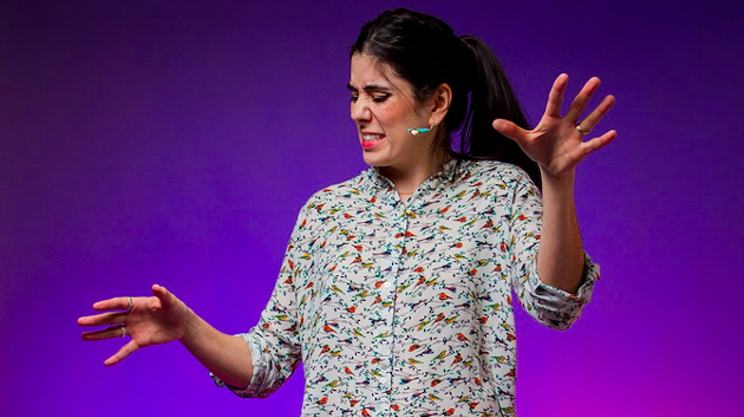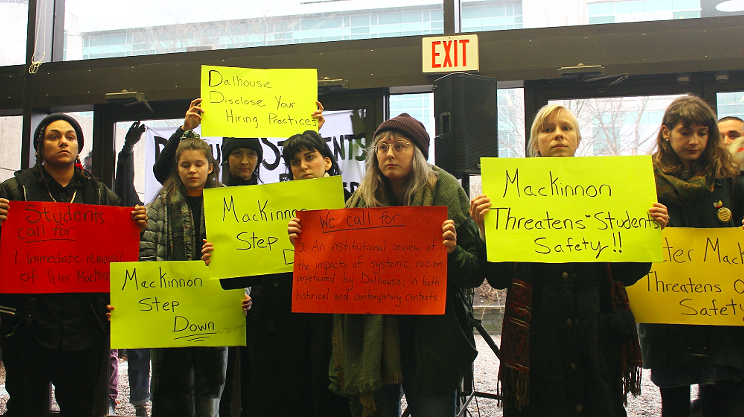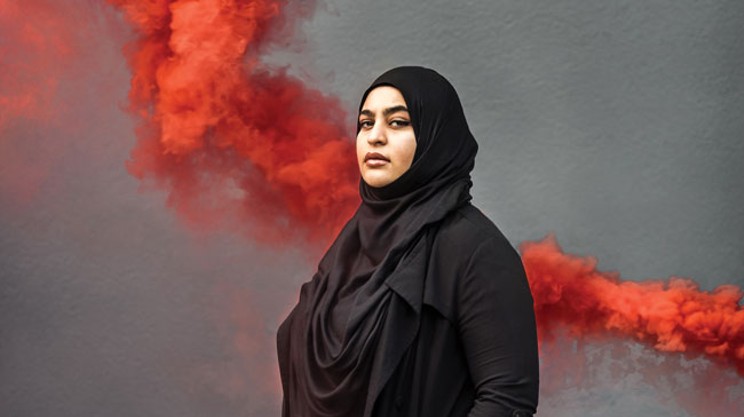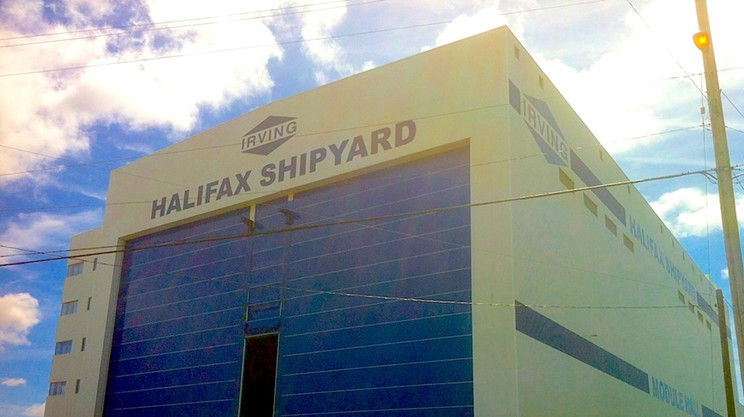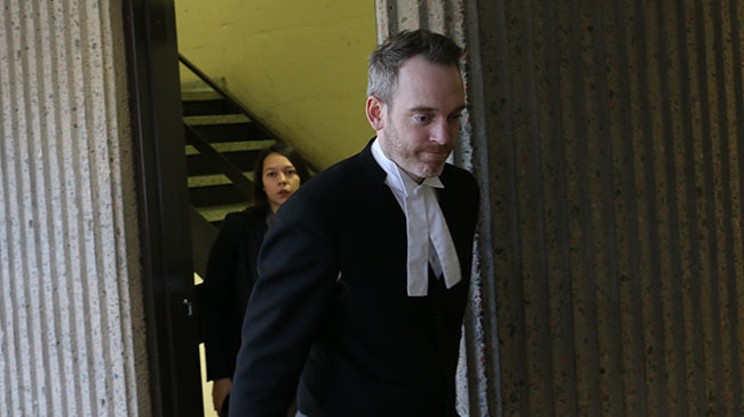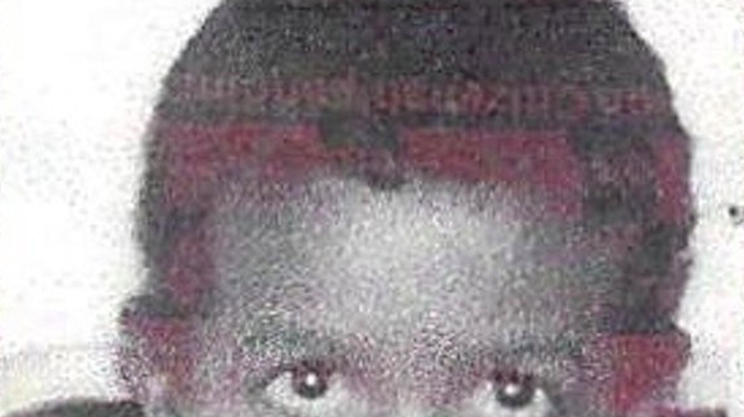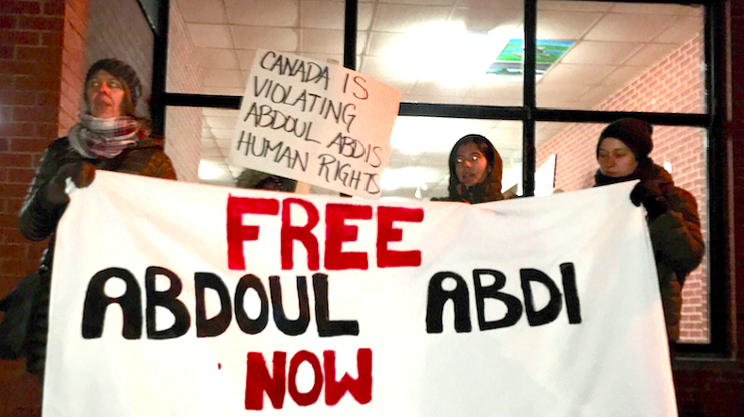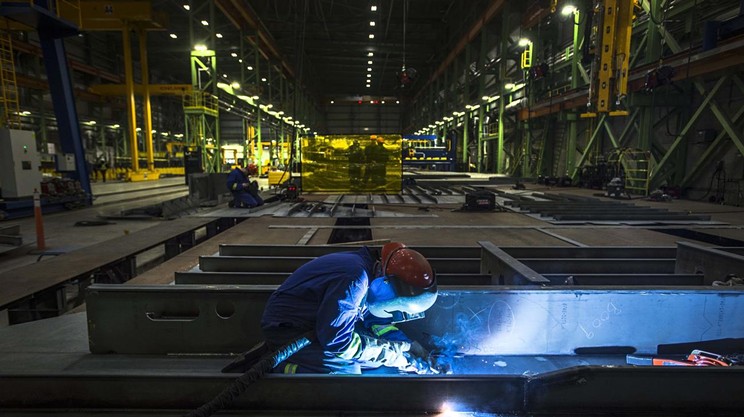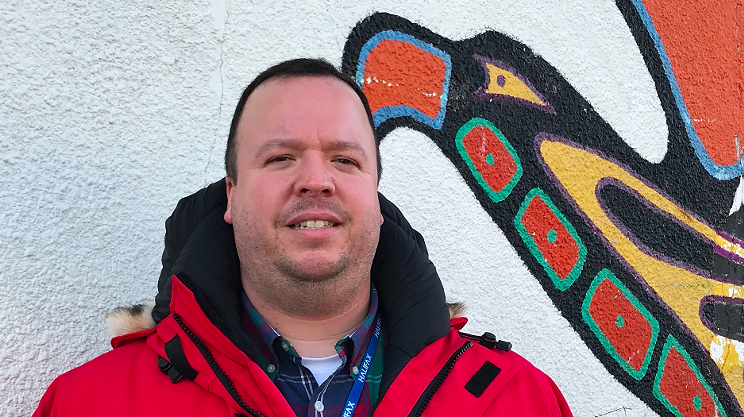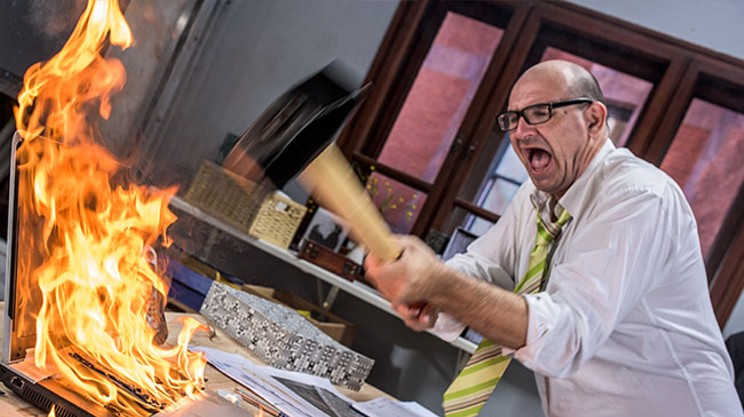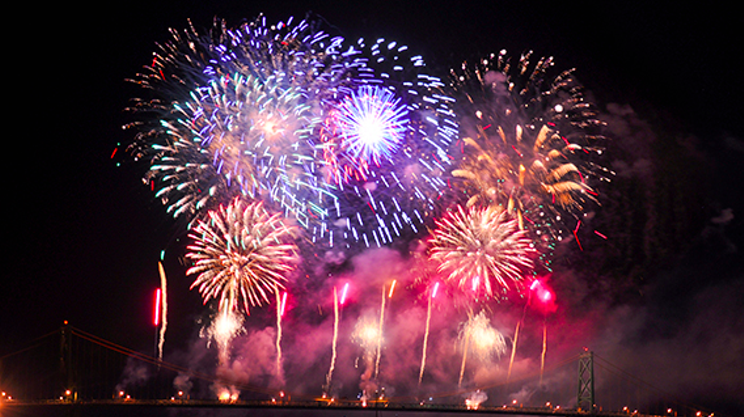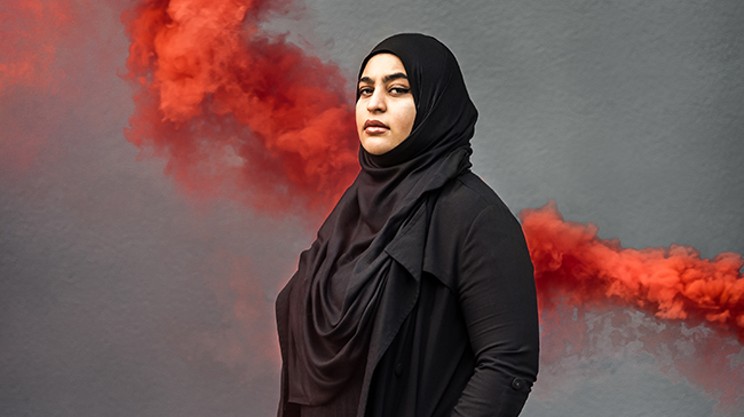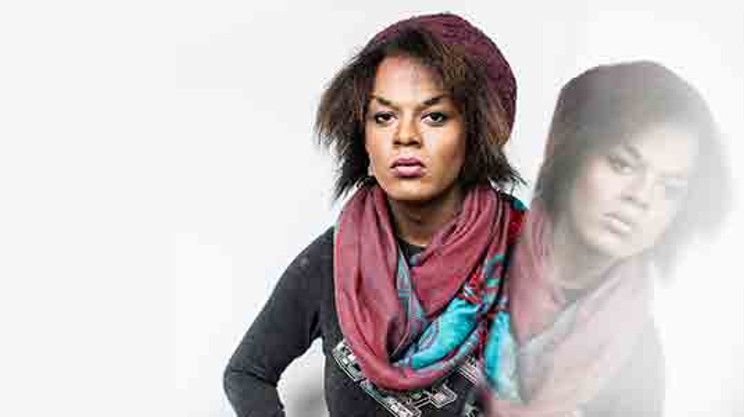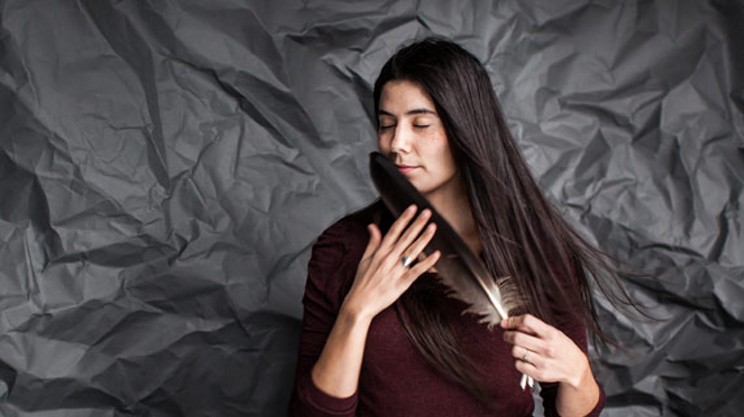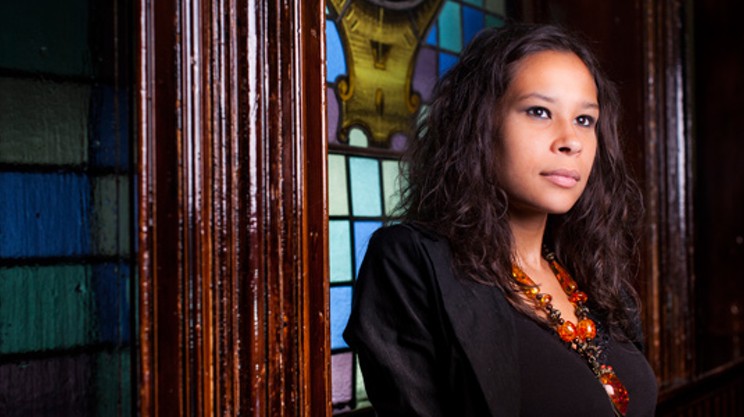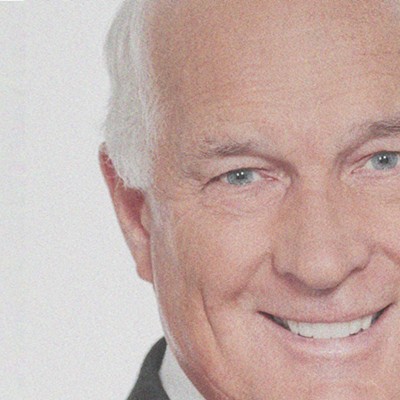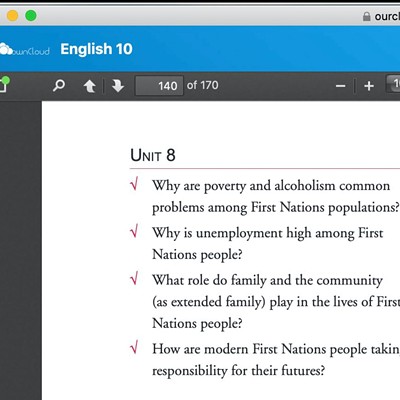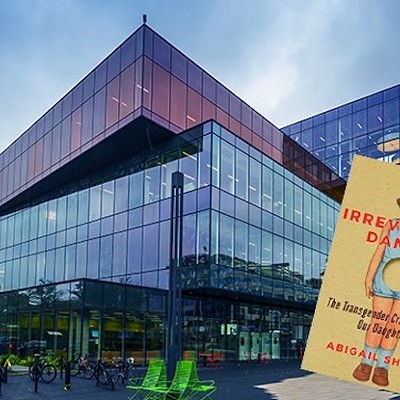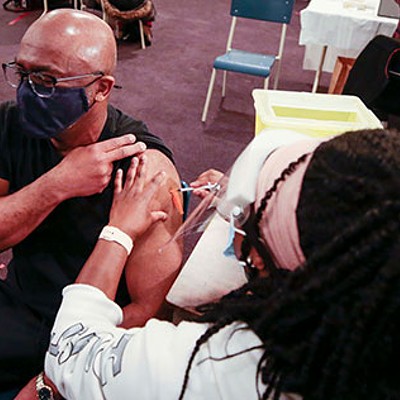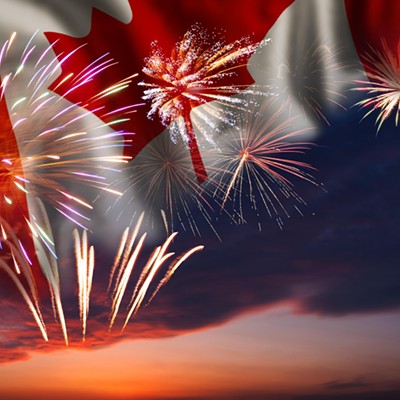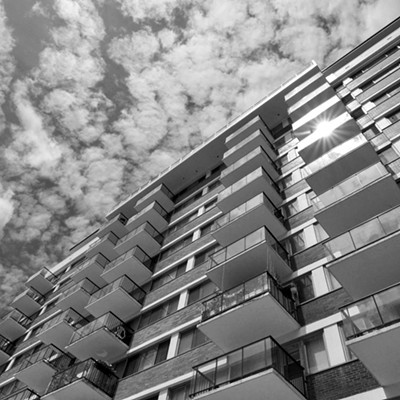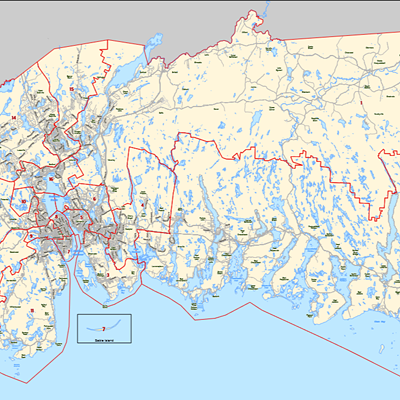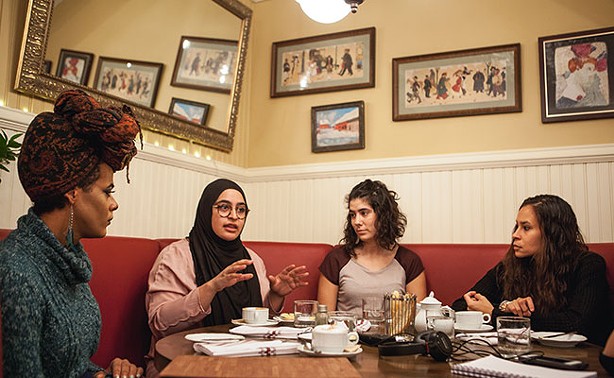
The major news stories of 2017 highlight how much labour has come off the backs of activists, but they also emphasize how much further we still need to go. From Cornwallis and street checks to white fragility and Pride’s pinkwashing, Halifax has a lot of work to do.
Fortunately, the resilient spirit of resistance in this city is led by a remarkable collection of strong, dedicated women. The Coast recently sat down with El Jones, Masuma Khan, Jade Byard Peek and Rebecca Thomas to discuss the events of the past year, and what they hope for in 2018. Their responses have been edited for style, clarity and length.
El Jones: I don’t think our gears shifted. I think white people’s gears shifted this year. It’s really a decade that I’ve been active. It’s not like there was never racism. There has always been pushback. I feel like now it is this sustained harassment. I’ve never experienced people following me around to an event just to tweet about me, or like entire threads about you on Reddit. The level of harassment is way up.
Jade Byard Peek: You consistently see through the year these TERF groups—you know, these Trans Exclusionary Radical Feminists—who are developing pockets and are targeting people.
Masuma Khan: Yeah, I found myself on white supremacist websites that were founded in the United States and, like, jihadi websites where these Americans have put me, saying that I am like a product of the Islamic State and I’m a terrorist. They even commented on the privilege I have as a fair-skinned brown person. The Reddit threads that started in July about me saying, “Why doesn’t someone else abduct Masuma Khan...and then the Canadian government can just pay her $10 million like we did with Omar Khadr.” I’ve dealt with Islamophobia my entire life. I’ve dealt with racism. I’ve seen the anti-immigrant narrative, but I’ve never seen it on this scale.
Rebecca Thomas: There’s a lot of lip service being paid to Indigenous people without anything fundamentally being done. There’s also, you know, the new census coming out where you see this kind of transformation of non-Indigenous people Indigenizing themselves through having, like, an ancestor 12 generations back and that undermines, I think, a lot of Indigenous movements and a lot of Indigenous struggle. It is breaking down Indigeneity to pure fundamentals of DNA, and that’s not what Indigenous is. It’s the culture, it’s the people, it’s the language and it’s a worldview. Everyone wants to be Indigenous until you’ve actually got to be native.
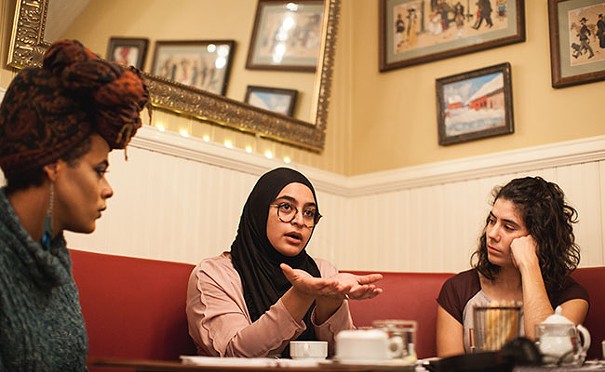
I’m going to sit this word down in the middle of the table and back away: Burnout.
RT: I’m so on the edge of tears all the time. Sometimes I feel it’s like, am I the only native in Halifax with an opinion? Because I am
EJ: For me, it’s not the work. I find the work energizing. It’s like the more that you get a profile, it’s supposed to be more powerful but it makes you much more vulnerable. People say “Oh, El you have all these platforms,” but they don’t understand it makes things worse. You feel like at any minute some attack can come and completely tear me down.
JBP: I’ve been trying to liberate, and I still do radical organizing in the way that I think radical organizing needs to be done, specifically in the Black community and arts community and BIPOC community. I think what keeps me going is the fact that I’m able to find those community spaces of folks that are holding me. Being in those high spaces, there’s a lot you have to do and there’s a lot that’s on your shoulders. But there’s also just a lot of violence.
MK: We all want to create this change. I recognize the things that I have to do and I recognize the danger that puts me in. And it’s not the work. I love working with our communities. I love putting on panels. I love screaming “so-so-solidarity.” But it’s that violence that is what has got me down. I’m in a funk, and I’d be lying if I said that I wasn’t. Every strong woman goes through weakness and this kind of vulnerability, this kind of violence can’t be explained in adjectives. I can only tell you that it’s something I would never wish upon even those who put
EJ: The Black Summit that just happened [in Toronto]. The Abdoul Abdi case we have been advocating for is about the Somali child that came at age six, taken into care—one of many cases where they haven't gotten him citizenship, and because of the experiences of abuse and trauma in foster care these kids very easily become criminalized. You know the Black kids are more at threat from the state. So he's now under deportation. I went to this summit to advocate on this case, and I was treated like I was someone who had no idea what they were talking about.
I realized the minister of Immigration was speaking, so I say to Desmond Cole, “We are going to have to do something to bring this forward in front of him.” The thing is, you don't like doing that. I think people always have this image that activists love this attention. It's actually horrible. We got up and we asked the minister a question about deporting child refugees. [He] was very patriarchal, in particular how he addressed Desmond but not me, but also this sort of denigration—as if you’re just this crazy person that doesn’t really know immigration. Then afterwards all day people are coming up to us and tone-policing us, saying “You are very rude. You attacked the minister. He's Black and we should support him.”
RT: It's really hard, too, because you know it's not just you. It's your reputation within your community and what you take away. If I don't accomplish the things that I set out to do, it's really frustrating because the community looks to you. I work in education, and I have so few resources available or flexibility to do a lot of things to support my students. The reason students come to see me is not
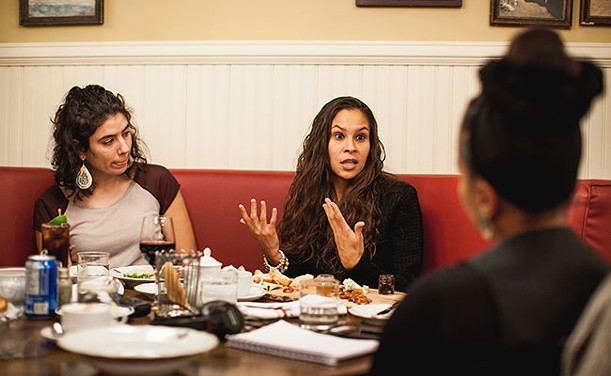
What can be done to address the violence you’ve all experienced?
EJ: I don’t think anything can be done.
RT: That’s like reporting structures, because the further you go up, the more white it becomes. So if you don’t have a safe reporting structure then it’s going to stop inevitably somewhere.
JBP: The problem is that the more issues that we fight for, the more that folks feel more inclined to come out and talk and try to shut it down. But I think the biggest problem is that the folks that are perpetuating this aren’t listening. They’re just talking over.
EJ: [Defending] the Proud Boys, saying things like “I’m not saying what they did was right, but should they really be losing their jobs?” So constantly shifting the conversation to everything except the bodies that are experiencing the violence. It is them I have a problem with because they’re the ones that have the opportunity to face these people.
RT: There's also that the more official a process becomes, the more the individual feels like they don't have responsibility. Reconciliation is a good example of that. “Canada's going to reconcile, so I don't have to do anything. Let's not take down that Cornwallis statue. You are whitewashing my history.” Which I think is the best, most-ironic misuse of the term ever. You can't go around white-washing the streets of Halifax. That's already been done. But yeah, there's that official policy and then the individual feels like it alleviates them from having to do anything and that's incredibly problematic. Those angry people who say things like, “You are a primitive people. You deserve to be conquered.” Those people I can easily cast off. It’s those really nice people who are playing devil's advocate. That's the hardest one to capture and to push back against, and that's so very frustrating.
JBP: This past year we’ve seen those racial flares come right back up again, and not just on social media. I was putting on a BIPOC artistic installation, which was an anchor project for Nocturne, with my partner. These Dalhousie bros came in with their Bush and Reagan t-shirts trying to harass us.
EJ: The [Metro] “Black in Halifax” series, someone tweeted about how we capitalize Black and not white, and I was like, “That is what you got out of the whole series?”
MK: Any time we even come close, the structures envelop us and we're just in violence.
EJ: And it’s not like we don't have white friends and white people in our families—white parents, even. We know whiteness. We grew up in it. We went to white schools. We know everything about white culture and we deal with it every day. And we have white people close to us, too. So it is very hard when you hear, “But white people are good” and people won't come to this understanding that this isn't happening out of error. So when you say, “What can we do about violence?” We can’t do anything because it is not an error. You are doing this on purpose. This is what your culture does to us. That is why good people sit and watch it happen because we're supposed to be experiencing this—we're supposed to be hurt. It’s very hard to come to terms with that, so we keep believing in this enlightenment era that good white culture will correct itself—that this is an anomaly and just some extreme people and that we don't support them. But you do support them. You all support them.
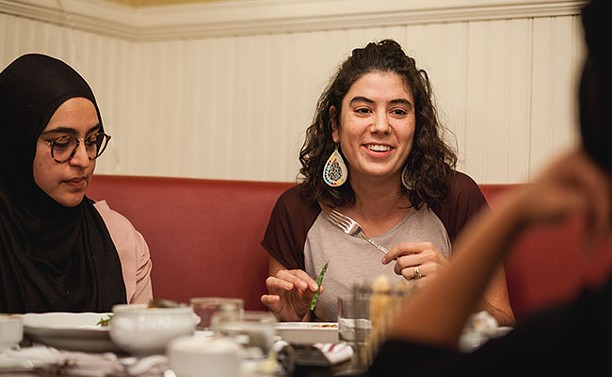
[By this point, the formerly empty restaurant has filled with other patrons—families and couples, almost all of them white. The unapologetic tone and relaxed feeling of comfort at the table shifts.]
With all the violence you face, how do you keep moving forward?
RT
EJ: It's funny because Abdoul asked me this question—“Why do you do this? Do you think you are going to win?” I said you have small wins sometimes. And he said, “Well that is enough, that is good, that is positive.” If this person in this oppressive circumstance can find the time to essentially comfort me, those are the times when you know you have to keep doing it. I mean you have to just have a sense of moving forward and that is where being able to be in a relationship with community comes in. Someone once asked me, “How do you get up on stage and just relentlessly make people uncomfortable?” I am not saying it alone. I am with people. They are standing there, giving their permission. Those stories came from people that gifted me their stories so that I can carry them forward. So as long as I speak those stories, I have an obligation to do something about it or I can shut up.
MK: Sharing this experience of violence with El, Jade and Rebecca, and many other racialized women that have been leading this work, is an unspoken bond that is very strong. When El sees that I am not myself, she knows why. She doesn’t have to ask me. When Jade sees me at my low, she knows why and she does everything she can to hold me while in that space.
It’s also from my mother. My mom tells me, “What do you do when you see your enemy? You stare them down. You’re not supposed to be this Afghan woman that’s supposed to shut up. You’re not like that. Our people didn’t kick out the British for this. We didn’t go through all of this colonial rule and get moved from India to Pakistan, Pakistan to Canada and come here for this.” My mother was that single woman who was raising three kids, who did her Masters, who did everything, working multiple jobs. That’s the kind of woman she is, who was vilified for being so outspoken in my own community. She was too outspoken to be a “good” Muslim woman. But my mother is the best Muslim woman I know. So for me, the only reason I’ve survived this is through other women.
JBP: I echo everything y’all are saying. I can’t stop. I carry my ancestors’ blood
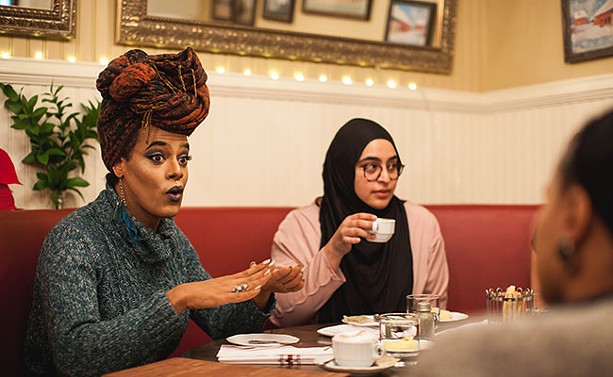
What would you like to see in 2018?
RT: I want to see non-racialized people talk to their own people. I have this line in a poem I wrote that says, “that uncle that keeps saying ‘Indian’ unapologetically, calling him out would go a long way in helping me.” My biggest one thing would be white people talking to white people, because we’re talking to them, and then all we experience is violence.
JBP: I 100 percent echo that. My New Year’s miracle is also for my own community. It’s often hard sitting in a Black perspective, in a Black community, and seeing some of the anti-Indigenous statements and having to check that. And the homophobia and transphobia that exists in the community. I’m like,
RT: I think there’s a lot of understanding that needs to happen all over the board. And again, if white people could take care of their own stuff, we could take care and time in our own communities as well.
MK: We’re talking about fixing our communities or working with our communities. My community is transphobic, homophobic, anti-Black, anti-Indigenous, patriarchal—I could call out every oppression and we have it. I agree with all that was said, but I think if I could have one thing in the new year, I would say...when we actually talk about our experiences and we’re making ourselves vulnerable and putting everything on the line that
EJ: I co-sign everything that was said, and would add if people could recognize Black women’s labour, that would make things easier. It’s not like anyone minds doing the work, but when we are doing the work constantly and then that work is erased and everyone else is benefiting from that work but us—while also taking on violence for doing that work—it is hard. So everyone is profiting off our backs but us. Can we make an effort to recognize it, cite it, pay it credit? Learn about Black women, that would help.
This copy has been changed to remove a specific reference, out of sensitivity to concerns from one of the interviewees.

